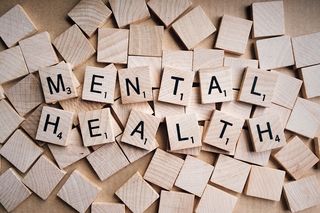Health
Spirituality and Mental Health
Do religious people have greater resilience?
Posted January 21, 2020 Reviewed by Devon Frye

For some people, the idea that there could be a connection between religion and better mental health seems a strange one. For instance, a 2015 article published in Maclean's—“The Science Is In: God is the Answer,” written by Brian Bethune and Genna Buck—provoked many hostile and incredulous reactions in the comments section.
The provocative title of the article was no doubt part of the reason for the anger. However, this reaction is not surprising for anyone who works in the field of religious studies. The commonplace understanding is that there can be no relationship between religion and science and that if anything, faith is the enemy of mental health. But in fact, a growing body of research reveals clearly that religious people are healthier both physically and mentally.
While this may seem curious at first, some reflection can quickly demonstrate why this might be the case. Spiritual traditions the world over have developed sophisticated systems that impact and regulate all aspects of human life. An obvious example is related to how individuals treat their bodies and the bodies of others. Many of the world’s religious traditions discourage the use of alcohol or drugs and emphasize the sacrality of all aspects of the human person. As a result, one Is expected to treat both their own and the bodies of others with care and respect. This can be very different from the secular model which tends to utilize a machine metaphor of the body and as possessing no intrinsic meaning.
Another important feature of traditional religions is that most emphasize community—and we know that socially isolated individuals are at risk for greater mental and physical problems. Many of the world’s religions mandate community support at all points in the life cycle: at birth, marriage, death, and points in between The larger group is expected to support the well-being of others. For instance, in the Jewish tradition, it is a mitzvah to visit the sick and is expected. Looked at in this way, it is less surprising to find a connection between religious belief and well-being.
The basis of the Maclean's article was research done by clinical psychologist Lisa Miller, whose studies focus on the mental health of adolescents. She found that religious belief—any religious belief—in adolescence was associated with a 60 percent reduced risk of suffering from depression, a 40 percent reduced risk of abusing drugs or alcohol, and an 80 percent reduced likelihood of engaging in unprotected sex (Bethune, 2015). As an added bonus, the teenagers studied also tended to fare better academically. Based on these results, many could argue that we, as a society, ought to re-examine what has been lost with the waning power of religious belief and practice.
Miller is certainly not the first to find these sorts of connections. Jeff Levin, medical doctor and researcher, was a pioneer in the field in the 1980s. In his research, Levin consulted the wealth of information found in surveys done by the National Institutes of Health. In his influential book God, Faith and Health (2001), he began to examine the findings that indicate that religious people live longer, on average, than non-religious people. Levin, like Miller, also notes the hostility that he faced from other doctors when he attempted to share his research findings.
Given the evidence, it may be the case that religion contributes to both physical and mental well-being. If researchers examine the reasons for this dispassionately and temper strong emotional reactions, we may be able to look at ways we can potentially utilize these findings to aid people in fostering better health.
Interestingly, there are signs that attitudes are changing. This likely due, in part, to the success of spiritually-based practices such as meditation. As a result, research psychology appears to be taking religious practice more seriously. In the next few blogs, we will be set out to examine what some of this research is revealing about age-old beliefs and practices and their implications for increased mental and emotional resilience.
References
Brian Bethune and Genna Buck, "The science in in: God is the answer," Macleans, March 30, 2015
Jeff Levin (2001). God, Faith and Health, New York: John Wiley & Sons, Inc.


